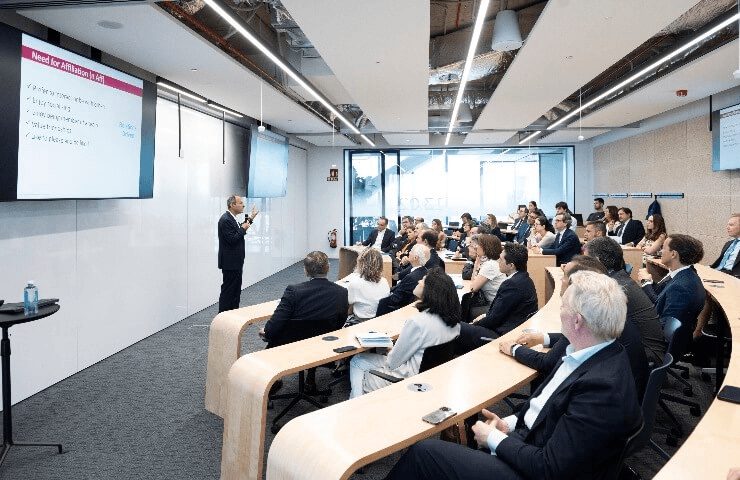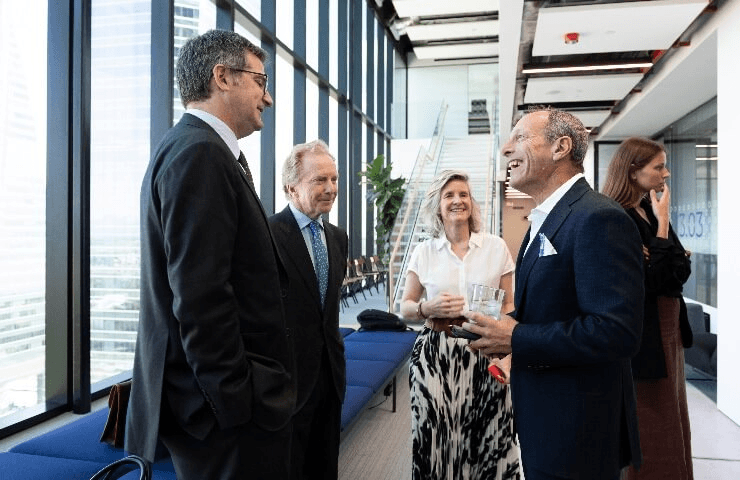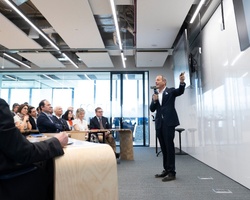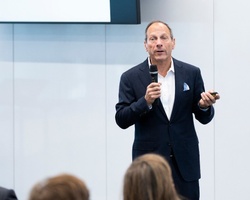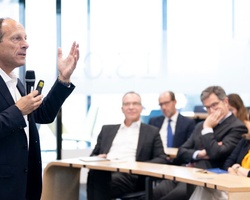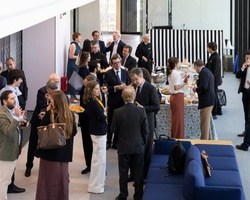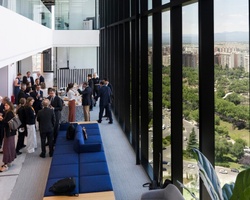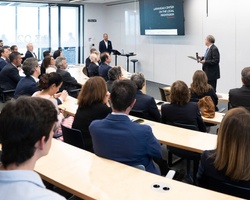- Home
- We Are Law School
- News
- A More Sustainable Legal Profession: A Conversation With Scott Westfahl
A more sustainable legal profession: a conversation with Scott Westfahl
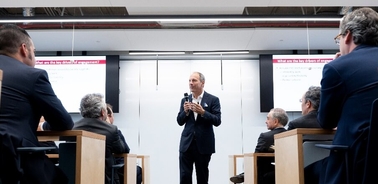
The LawAhead Center was honored to host renowned Professor of Practice & Faculty Director of Executive Education at Harvard Law School, Scott Westfahl.
IE Law School’s LawAhead Center on the Legal Profession was founded as a forum for industry leaders to come together and instigate change, seeking to make a lasting impact on society. Last week, the center welcomed several legal practitioners to listen to an insightful talk by distinguished Harvard Law School Professor, Scott Westfahl.
An expert in revolutionizing leadership in the sector, Professor Scott has a varied background with years of experience in consulting across different fields. His talk at the LawAhead Center focused on fostering a more sustainable legal profession, specifically in relation to talent retention.
To open the lecture, Scott underlines that law firms are now competing in two global markets: one for clients and another for talent. Much of the legal sector still fails to consider talent on a strategic level—in the way other business sectors have long been doing—and in order for things to change, “uncomfortable conversations are required, something the legal profession often doesn’t embrace,” he explains.
"The market for talent has never been as global or as transparent in all of human history. This means it’s far more competitive." Other financially robust sectors, from big tech to the top banks or consultancy firms, are increasingly competing to hire the best law graduates. As a result, the need to motivate and retain talent in-house is greater than ever before.
In this context, the professor poses the question, “What are the key drivers of engagement?” How can the legal field continue attracting and retaining the best and brightest? Despite bemoaning a lack of data on employee happiness compared to other sectors, Scott explained how legal profiles generally rank highly in regard to need for achievement and affiliation.
With this in mind, the legal field is lagging behind big businesses in providing its young people with key markers such as expectations, feedback, mentoring, recognition or encouragement. He encourages law firms to start implementing these types of processes in order to avoid losing top talent.
Professor Scott then played a video clip of Capuchin monkeys rejecting cucumbers in favor of grapes, sending ripples of laughter around the room at IE Tower. This was Dr. Sarah Brown’s study on fairness in pay, which he used to illustrate how extrinsic motivation can be important—though “largely in a relative sense.” Increasingly, other drivers and incentives are what help retain talented young lawyers.
Crucially though: "If it feels like a system, it’s not so motivating. Think about what people actually want and how you can help them give it to them." In other words, unexpected perks, personal guidance and professional development are decisive factors: "If I’m continually being taught and will develop mastery, I’ll stick around."
Scott also feels law firms must "better articulate their mission." Reflecting on the impact of the global pandemic, he explains: "Globally, we were all challenged to step back and think about what really matters in our lives during the pandemic. As a legal profession, we do a terrible job of this." Young people are more attuned to meaning and purpose, so "having a mission statement that people believe in and talk about can matter a lot."
In his closing remarks, Professor Scott reflects on years of research and experience: "What motivates people doesn’t really change generationally, but how we perceive the world and seek to fulfill our psycho-social needs varies by context." In that context, he evokes the Walt Disney corporation and encourages law firms to "find their Mickey Mouse factor," asking: "What are the elements that hold everything together in our firm?" Simply put, we have to find what makes working for us different from the rest.
